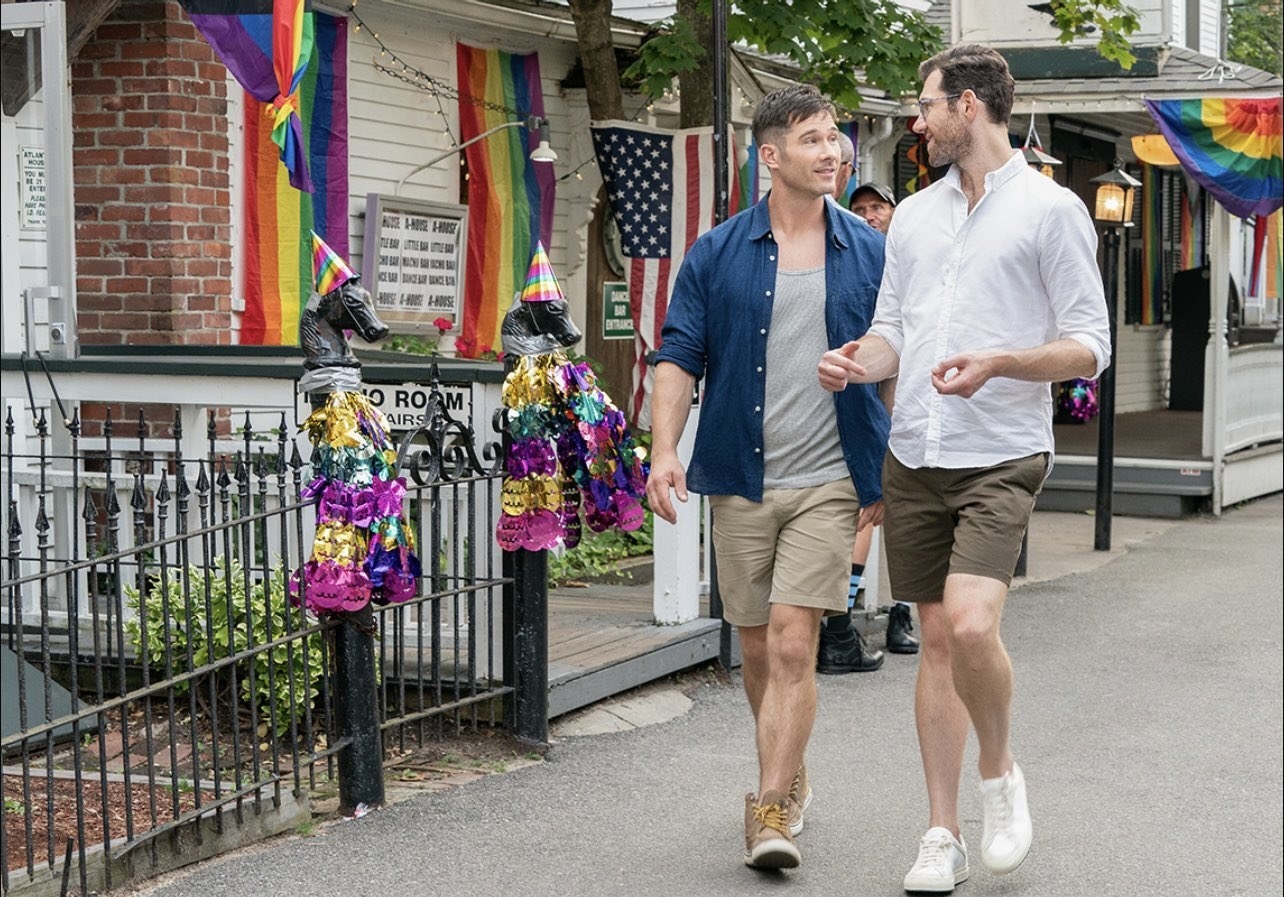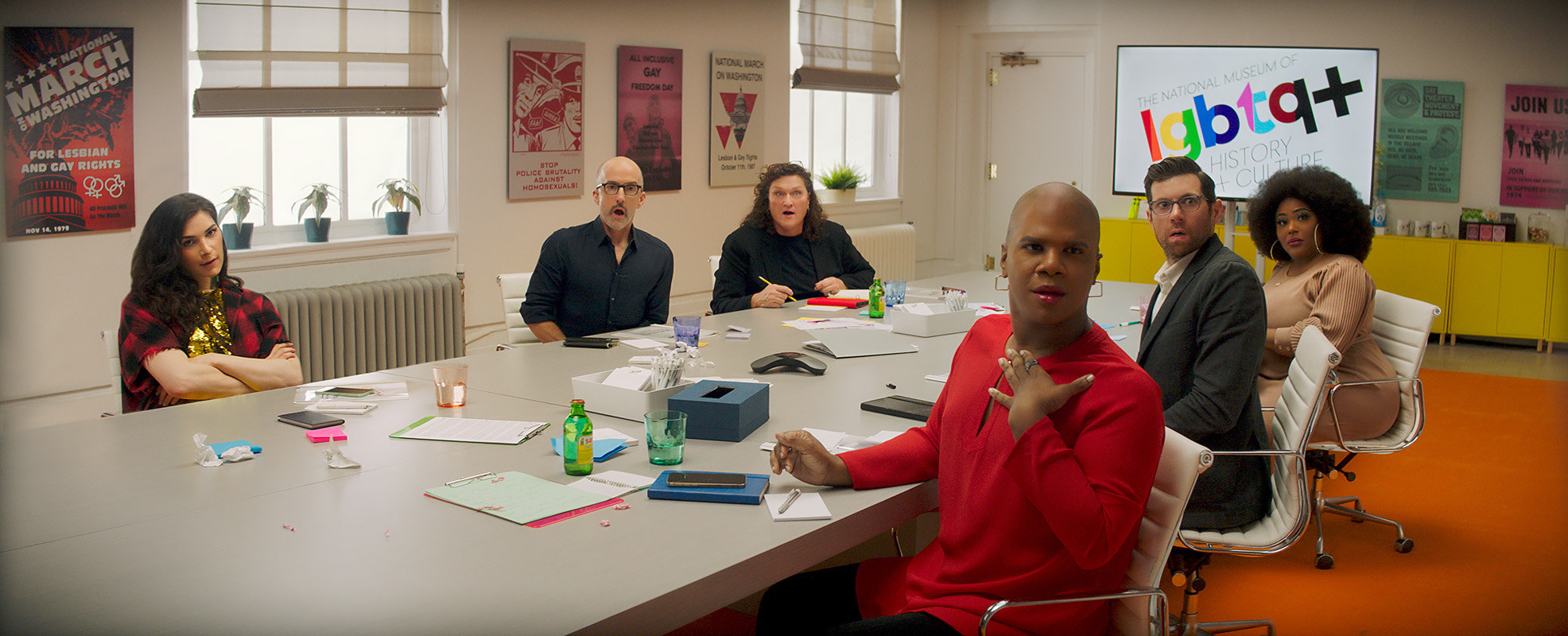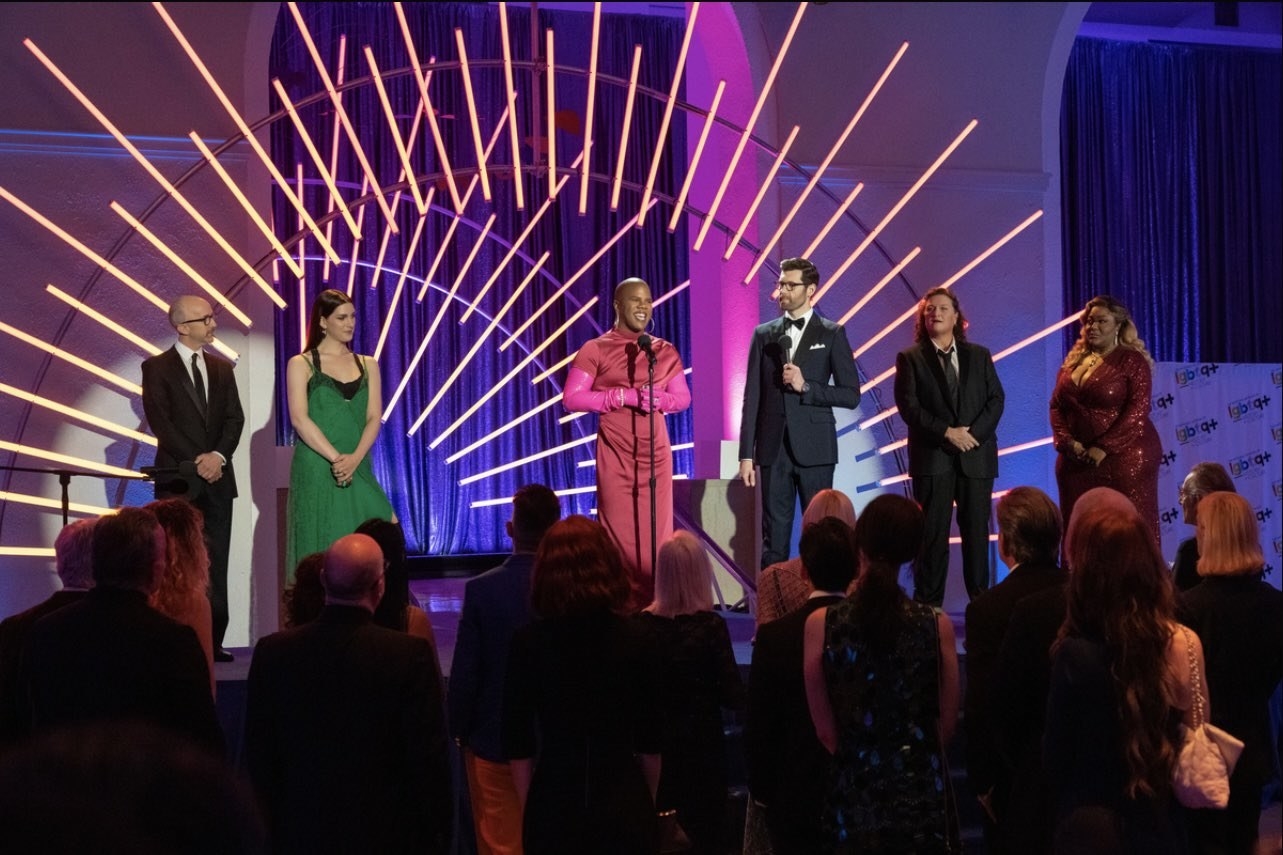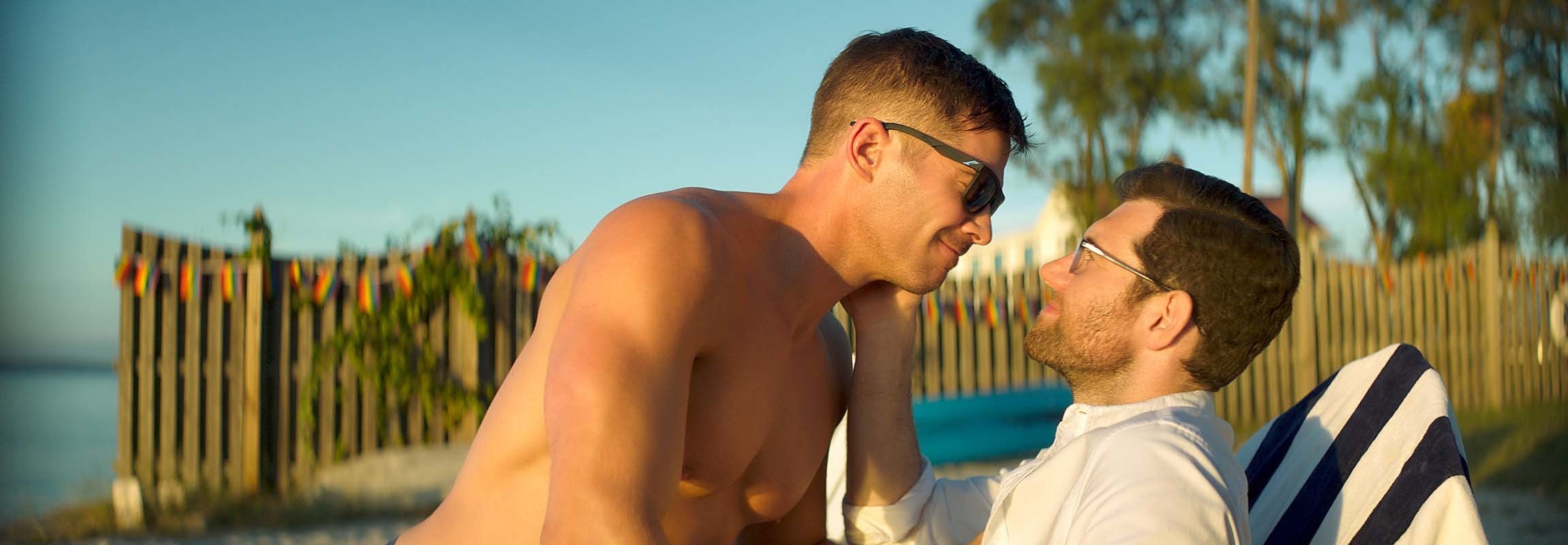Since the press for Billy Eichner’s queer rom-com began, a lot has swirled around it, from the all-LGBTQ+ cast, to it be being one of the “firsts” of its kind, and so much more with the idea that this film was revolutionary. However, since its release, poor box office numbers, bad marketing, and an overall discomfort around the future of queer film by major studios have plagued the film. Let’s be real before we jump in. This film never stood a chance in gay or straight hell. How come we expected a film in a dead genre during a bad time for movie theaters to be everything queer people hoped for when 99.9% of all the other movies in theaters just flat out ignore LGBTQ+ people and themes? While there have been a few standouts in recent years, like Crazy Rich Asians and The Lost City, those films succeeded on many other factors, with the rom-com aspects pushed to the back. Whether it was using a best-selling novel to garner an immediate support base or simply marketing the film as a comedy with some romance, the few successes in the genre have basically let the film industry know that rom-com films are not where to make the money. Most of the success of rom-coms, especially queer ones, have been on streamers, like Fire Island, who did not have to depend on a massive traditional press cycle, while also letting the movie be more accessible, allowing the film to not need A-list actors to garner an audience. The press cycle for Bros tried to placate its rom-com genre by marketing the film as “for everyone” and “a film to bring to your straight friends, too,” while saying it was a revolutionary, “first of its kind” film, setting up high expectations for a film that ended up not making the bang it needed to. In the run-up to its release, the consensus from the marketing was that this movie was revolutionary. To its credit, the film is a rarity being an LGBTQ+ film released by a major studio, something that hasn’t really been done save Love, Simon. However, after seeing the movie, it’s hard to praise the merits of aspects like its all-queer casting, when 95% of the dialogue is done by two cis-white gays, one whose character is basically a buff, masc, “I’m not like those other gays” gay. When the film is constantly being praised in the marketing for its all-LGBTQ+ cast, it just feels weird when some genuine talents like TS Madison, Miss Lawrence, Dot Marie-Jones, and Bowen Yang have barely any lines in the few scenes they show up. When the marketing makes the film seem like Bros is the start of a new era and the film ends just being a solid rom-com, it’s a puzzling feeling. Is it Billy Eichner’s fault that he hyped up the queer aspects of this very queer film? I’m going to say no, as realistically, Universal Pictures probably coordinated every inch of the $20-plus million film in the same way it has done so with every other heterosexual film they put out. Billy Eichner and everyone involved did exactly what they needed to in creating a sound comedy and a touching romance, but sometimes, good enough just isn’t good enough. It’s hard as a queer person to trust any major production that includes LGBTQ+ themes or characters, because the major film industry has earned no favors in the queer community. In the Marvel Cinematic Universe, one of the biggest film franchises of all time, we had to wait for almost 20 films across two decades to even get A MENTION of a queer character, who in Avengers: Endgame (another film that hyped up its “first” queer character) ended up being a one-minute cameo from an unnamed character with two lines and literally no name. Even now, we still get piecemeal representation sanitized down to be palatable to straight audiences. It doesn’t get much better when you look at other studios, either. GLAAD has an amazing yearly report on LGBTQ+ people in major film, that I highly recommend to those curious about just how egregious major film studios have been toward LGBTQ+ people. If you want the CliffsNotes, trans, bi, POC, and women are largely left out of the picture from studio films (Bros included). Independent films have a long history of including LGBTQ+ stories and themes, which opens queer people to seeing them, as experience shows that a film from a major studio with queer characters or themes rarely does a good enough job, whereas independent/mid-sized budget films are kinder to queer audiences. Straight people can enjoy LGBTQ+ entertainment, but they also have 99% of the rest of entertainment catered to them. So, when the film’s selling point is that “straight people will like it, too!” that reads as the queer content in the film is being watered down for a wider audience, which doesn’t really match with the LGBTQ+ importance the marketing made very clear. LGBTQ+ themes and stories are often not friendly to straight people, because we live in a world dictated by straight people and suffer because of it, so we cherish the works that are purely queer for queer people. As a queer person who has spent a lifetime consuming watered down queer content meant to not upset straight audiences, Bros and its “bring your straight friend” tag didn’t excite me. In the age of films like Fire Island, Moonlight, and even Netflix’s cheesy gay Christmas movie, Single All the Way, it was hard to get excited about Bros, and after seeing it, it’s hard to defend it as anything more than a pretty good movie, even if it is queer. The most concerning thread of conversation surrounds the fears that its failure may keep other LGBTQ+ films from happening, which considering the amount heterosexual films that flop harder each week, is just unfair. Being a queer person, I do fully believe that unfortunately, Bros’ failure will affect future LGBTQ+ films, because ultimately, the film industry is a capitalistic enterprise focused on making money, not making people happy or being fair. Luckily, LGBTQ+ films fare far better on streaming services, and LGBTQ+ content on television is better than ever. Bros will escape this bad press soon enough. It will probably end up on streaming and cable syndication, where it will get the chance to be seen by so many queer people who will love it and smile. While it will fade, ultimately, it will succeed by simply existing, showing any of its queer viewers that they deserve (and will achieve) happiness.



